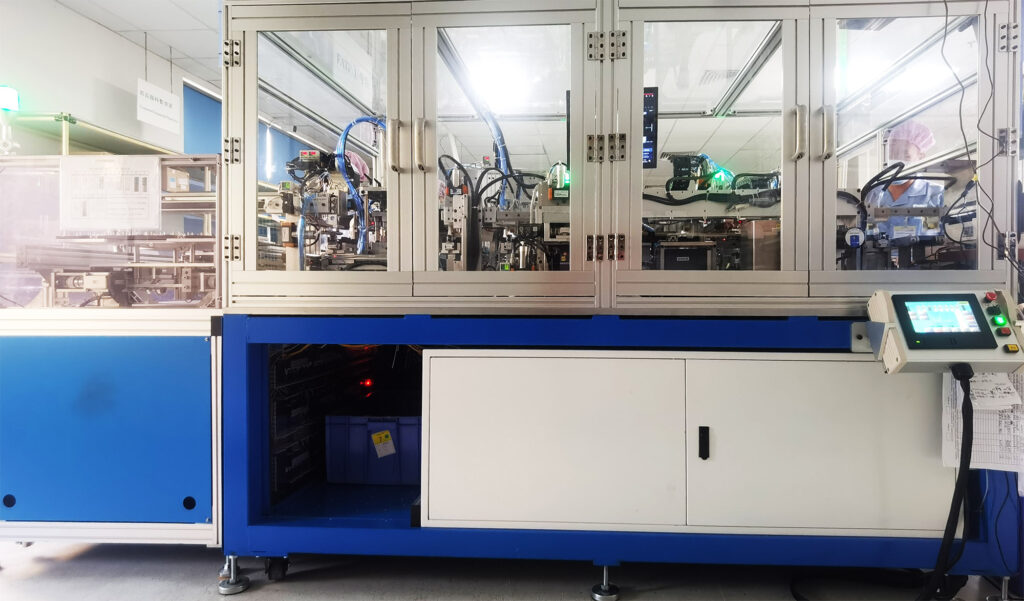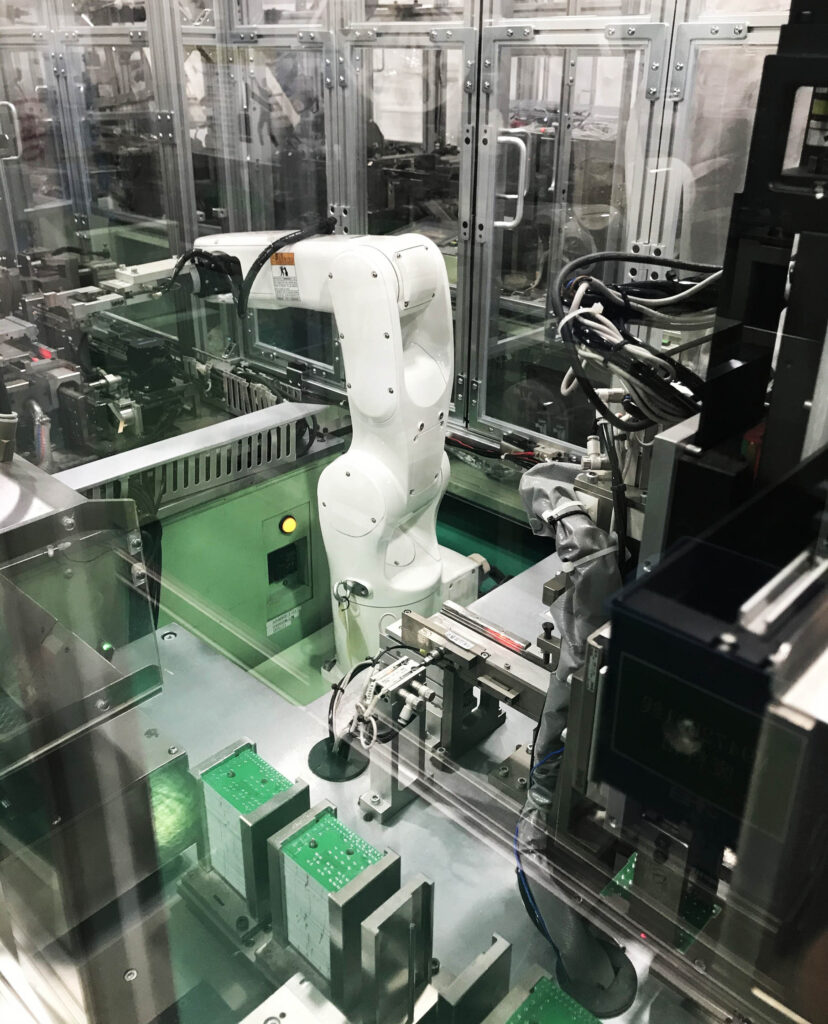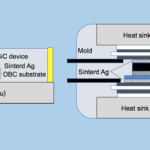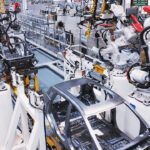ASIA ELECTRONICS INDUSTRYYOUR WINDOW TO SMART MANUFACTURING
Japan Parts Makers Accelerate Automation in China
Japanese electronic components manufacturers have been accelerating automation, labor-saving measures, and the smartification of their Chinese factories. Moreover, to meet customers’ demand for higher quality and cope with labor shortages, they have been advancing automation and labor-saving technologies. Hence, they aim to further upgrade manufacturing.
Rising labor costs and shortage of skilled young workers are among issues hounding China now. In addition, local users are demanding increasingly higher quality of procured products. For that reason, Chinese local plants of Japanese electronic components manufacturers have been installing machines and automate production lines. Thus, they are increasing output per employee and eliminating human errors. With these efforts, they pursue dramatic improvements in productivity.

Particularly, the automation of the inspection process, which requires many hands, and the unmanned operation of the transfer process using automated guided vehicles (AGVs) are also advancing. In addition, the automation of the assembly process.
Meanwhile, manufacturers also focus on the expansion of their local production technology department to enhance in-house production of automated assembly machines and automated image inspection machines that are used in factories.
Boosts Production
SMK Corporation’s SMK Electronics (Dongguan) Co., Ltd. in Guangdong Province has been investing activity to improve productivity. Its main products are remote controls. Furthermore, the plant also produces jacks/connectors, and switches.
Several years ago, SMK Electronics (Dongguan) automated the production of remote controls for set-top boxes (STBs). Then, in May 2021, it installed and put to operation an automated assembly machine for remote controls for housing equipment. Moreover, the company plans to put into operation a highly versatile automated modular assembly machine for remote controls in April.
“With this, automation even for a monthly production of about 20,000 units becomes possible,” says Hirokazu Nagashima, President of SMK Electronics (Dongguan).
The company has also been installing soldering robots in stages. It has installed a multicolor printing machine to the printing process of remote controls. Down the road, SMK also plans to start in-house production of automated printers at SMK Electronics (Dongguan).

Pursues High Quality
IRISO Electronics Co., Ltd.’s facility in Shanghai, China, a manufacturing base with automotive connectors as its main products, makes it its mission to pursue high quality.
The Shanghai Plant has been aggressively advancing the improvement of productivity through automation. In the plant, a total of 56 robots are operating. To save manpower, the plant installs robots in the inspection and packing processes in addition to the manufacturing process.
“With labor-saving efforts, the number of employees has reduced to about 680 from about 3,900. Meanwhile, sales have doubled those at the time with 3,900 employees,” according to IRISO Electronics.
Recently, the company has been stepping up the installation of machines with excellent general versatility meeting variable-mix, small-lot production. These machines can produce about 10 kinds of products per machine. Moving forward, the company will install robots in stages in accordance with demand.
To Advance Automation Further
Sumida Corporation has seven plants in China with the Panyu Plant in Guangdong Province as the main plant. The company has been carrying out production activities with high added values implementing continuous investment in plants and equipment, further speeding up the processes from design to mass production, and thorough improvement of production.
The Panyu Plant, which is the mother plant, has functions to design and manufacture press dies and molds, and develop production technologies. Furthermore, the plant deploys production technologies it has established to other plants. It also speedily launches the production of new products using the trial production line in the plant. Down the road, the company will promote the expansion of equipment in accordance with demand. Furthermore, it will advance the automation and labor-saving measures of the production line.
Meiko Electronics Co., Ltd. has two plants for printed circuit boards (PCBs) in Guangzhou and Wuhan in China. The two plants produce PCBs for automobiles and smartphones. They have been improving added values of production items and enhancing productivity through automation and labor savings. The companies have also been stepping up energy-savings and recycling activities. They advance the reduction of environmental load by promoting recycling of palladium in the plating process, and the reduction of the moisture content of sludge in drainage.
Leverages on Automated Production
OTAX CO., LTD. has been vigorously promoting automation and labor-saving at its Shenzhen Plant in Shenzhen in Guangdong Province. It is the company’s mother plant. In addition, most of the assembly of dual in-line package (DIP) switches is performed using automatic machines. Hence, they leverage on automated production of power supply switches and terminal blocks. As a result, the number of employees of the plant has reduced to about 1,000 from about 2,500 at the peak. Shukei Tomita, Chief Executive Officer of OTAX, says, “Productivity has been improving. Automation has been surely producing effects.”
Aside from assembly, the Shenzhen Plant has all functions involving manufacturing, including the processing of components, such as press and molding; plating; die design; development of automatic machines; and design of products. Particularly, it has strengthened a function as a technology center, and has been deployed as a technology center near the market. In the latter half of 2021, the company expanded the dust-proof-measure floor of the DIP switch manufacturing process.
The Shenzhen Plant can accommodate manufacturing in all processes, and development and production of products, metal molds, and automation equipment in a consistent manner. It is also focusing efforts to deploy automatic machines developed and manufactured at the plant to other overseas plants of the OTAX Group.




